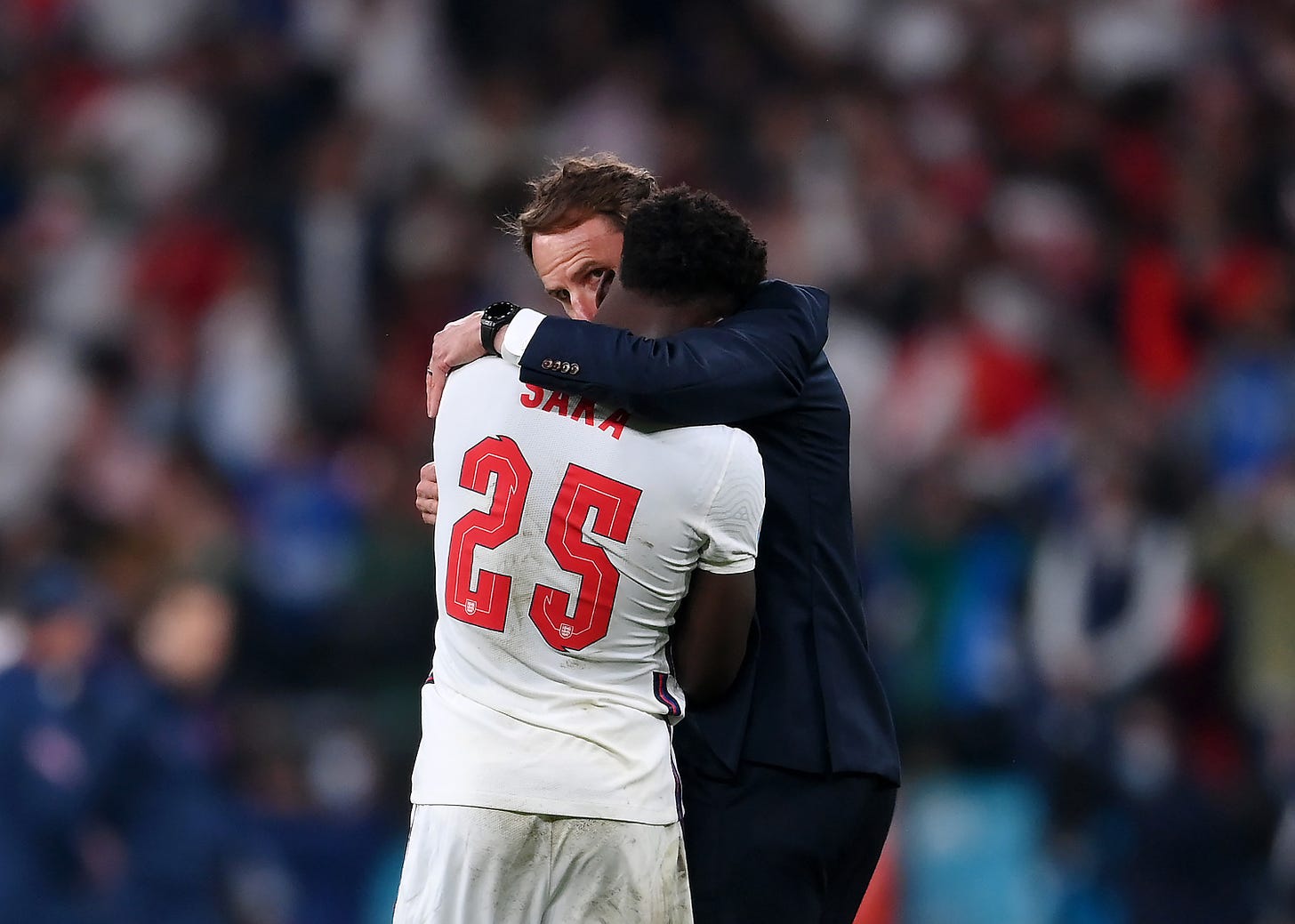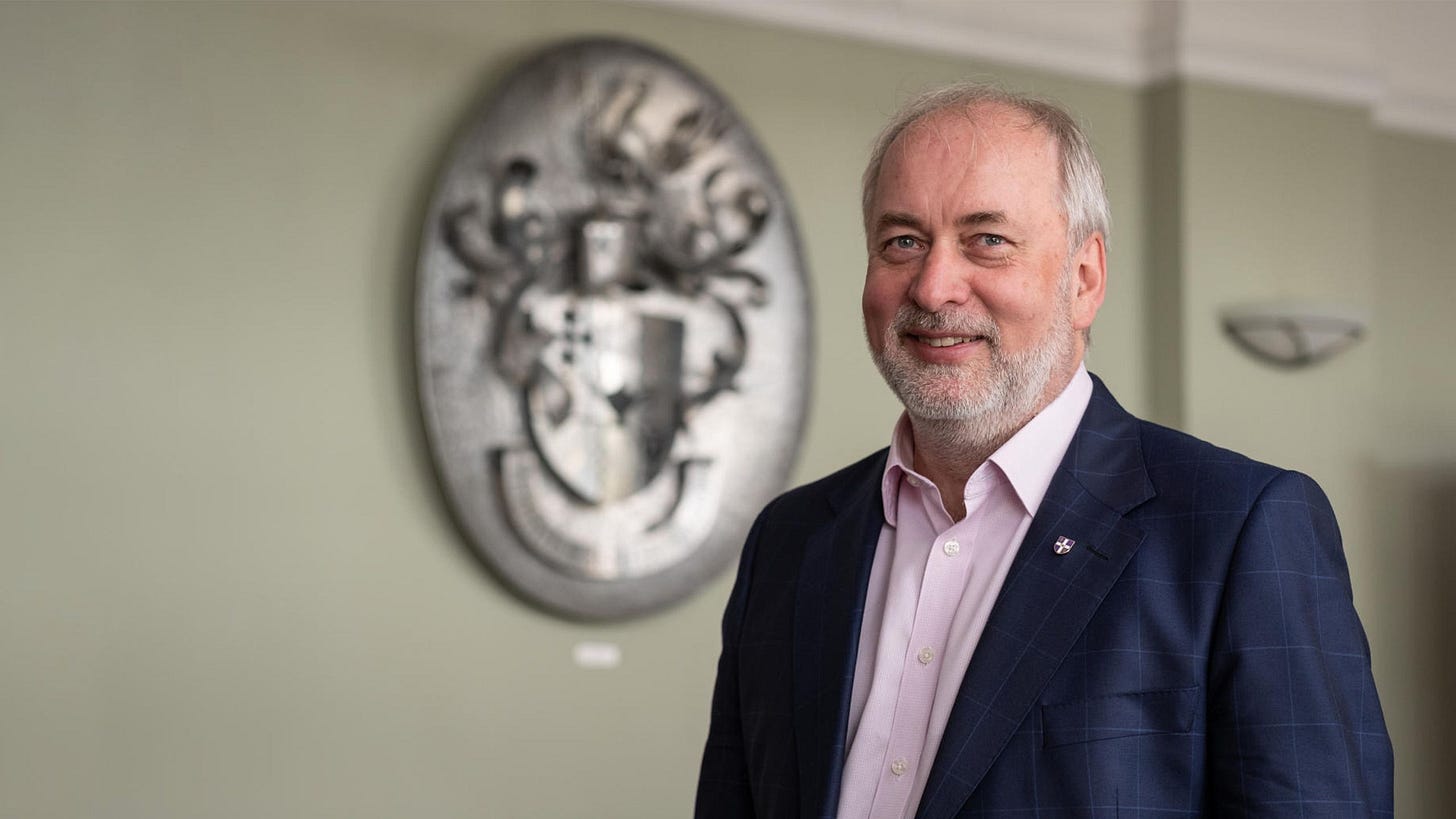How AI can help fight the trolls when it comes to online abuse of players
Online abuse has been one of the scourges of social media, with players often targeted

As we wrap up yet another season of top-flight football, the life of a Premier League football player can seem to be a charmed one.
Money, fame, adoration from fans in their thousands, what’s not to like about all that from a player's perspective?
But behind the veneer, it isn’t always rosy, and with such scrutiny and fame comes the pressures of delivering week in, week out. When things are great things are really great, and when things are bad things can be really bad.
Recent years have seen significant strides forward in terms of tackling the stigma of mental health in society, and sport has been a part of that.
The increased prevalence of social media has afforded clubs the chance to make the world smaller, to reach and engage with fans globally. It has allowed players to become brands of their own.
But what happens when things go south? Social media has had a habit of magnifying the very worst elements of society, where horrendous abuse is dished out from trolls from behind an anonymous username. The faceless, nameless nature of some sites has indirectly encouraged the abuse and trolling of players, whether it be for poor performance, a flashpoint in a game, or other means.
With hundreds of thousands, sometimes millions of followers on social media, footballers are very much in the spotlight, and shielding themselves from vicious online abuse can be a challenge.
Speaking earlier this year to BBC Radio 4’s podcast ‘Why Do You Hate Me?’, former Everton and Brighton & Hove Albion striker Neal Maupay, currently at Brentford, recalled his own abuse online in the moments after scoring a last-minute winner for the Seagulls against Arsenal.
"I got home and got a phone call from the club saying, listen, there's a lot of stuff going on online,” said the Frenchman. “We advise you to switch off your social media and deactivate your accounts if you want to.”
Other messages sent to Maupay claimed that his “loved ones would go through suffering”, and “your family will be attacked later in the day just watch.”
"It was very disturbing," he added. "I called the club and I said, we need to do something, because what if that guy is really coming to my house?"
Despite the profile having been blocked by Instagram after it was reported, another account was then set up by the same person, sending Maupay the message "You think by reporting my account you're safe? I will kill you and your family."
The Premier League has a task force to try and tackle this kind of online abuse aimed at players, but given the sheer size of the social media firms and the amount of users that can operate on them, often anonymously, it is a challenge to protect them.
Abuse from the stands isn’t a new phenomenon. Some of it is fairly tame, other times it can cross the line of decency. The game still toils with some age-old problems, such as racism. But in the modern age, where fans can directly reach players with their comments on social media with a few taps of their phone, the problem has become amplified.
But what can truly be done about it?
Artificial intelligence has been creeping into our everyday lives for a little while now. The thought of AI for people of a certain age may conjure up visions of Skynet and Terminator, with robots ruling the world, but its application in reality, away from the silver screen, is quite different.
Sentient Sports is a UK-based AI company that seeks to offer up solutions using AI to sporting organisations. Among those on its board include former Manchester United vice-chairman Ed Woodward.
“We don’t struggle to convince people that this is a problem and what is there isn’t adequate. Without change, things are not going to get better.” PROFESSOR NICK JENNINGS
The firm has recently added Professor Nick Jennings, Vice-Chancellor and President of Loughborough University to its board of directors as it looks to bring its AI capabilities and machine learning to work with clubs and sports organisations to block out toxic content aimed at players on social media.
Internationally recognised as one of the leading computer scientists, with over 95,000 citations to his name, Professor Jennings has also held roles as the Vice-Provost for Research and Enterprise at Imperial College London, along with becoming the UK’s first Regius Professor of Computer Science at the University of Southampton and the first Chief Scientific Advisor for National Security for the UK Government.
“Social media can be very toxic,” said Professor Jennings, speaking to the Bottom Line.
“This is something that athletes feel strongly about. They feel very unprotected. We’d like to be able to support and protect, players.
“There's a particular product side that helps monitor social media of many different forms using AI techniques, so moving beyond sort of keywords and sort of standard technologies to, to do analysis and protection and then also some of the domain-specific knowledge about football and sport and the kinds of things that might trigger it.
“There are various social media, monitoring tools out there, I think this is just the next generation of those where you're using the smarts of AI, but also the smarts of AI tailored to a specific football or sport content which I think is really what you need to wrap around and helps you not only just respond, but also made me think about before it happens.
“After an event or after a game you might think ‘Well, actually, that's possibly going to be a significant event that's going to impact this player’. Then you can proactively set about a way to put your arms around a player and sort of act as an umbrella.”
The software wouldn’t be run through the big social media sites like Facebook, Instagram, and X, but would instead be something that teams and leagues could sign up for, enabling them to add a layer of protection around their players on social media and filter out abuse that they may be subjected to.
Added Professor Jennings: “It is an app, and it will learn what is a regular pattern and an irregular pattern, but it won’t be controlled and ran by social media platforms. It will be done through the athlete or the teams.
“We are currently having sensitive discussions about this with a number of teams and leagues. They completely recognise the problem, it is what they see for themselves. Mental health is an important aspect of all of our lives, but particularly for elite athletes, under a spotlight like never before.
“We don’t struggle to convince people that this is a problem and what is there isn’t adequate. Without change, things are not going to get better.”
The issue of online abuse has been heightened in recent weeks with England players informed by police that will take seriously any such targeted abuse and threats made through social media during this summer’s Euro2024 competition.
During the last European Championships, England stars Bukayo Saka, Marcus Rashford, and Jadon Sancho were all subjected to vile racist abuse online in the wake of the country’s penalty-shootout loss to Italy in the final at Wembley.
Dr. Ryan Beal, CEO and founder of SentientSports added: “By leveraging cutting-edge AI technology, our aim is to build sophisticated AI agents across social media platforms and news outlets.
“These agents will be equipped to automatically detect abusive content, initiate legal takedown procedures, and alert the relevant authorities. Additionally, our AI tools will help sports clubs identify players at risk of such abuse, enabling timely intervention with appropriate support and training.”






My experience with social media and abuse directed at sports players, the anger/rage/hate is done in the moment. It is an automatic process. Social media has become an outlet where ppl can freely express an emotion. There is no thought process, something in a game upsets the supporter - they blow and the their post is a seed of a weed that spreads outwards. Like I said, there is no thought process, or to put it a better way, there is no breath. It also comes down to a lack of literature skills - expressing emotion through words. An AI/chatgp can get involved by changing the thought process - make the brain think b4 posting. Just a few key words are needed - and I hate to say this but this is where whataboutism has been proven to have worked, but in the wrong way, so far. A player misses a penalty, but what about the keeper, he’s the best in the world, or he’s had a lot to think about all game. The ref makes a controversial decision, it happens, but what about their decision earlier on. We can use whataboutism to change tone and emotion. Like I have mentioned, whataboutism has been proven to work (although in a different context) use it for good.
And this is where having a few commentators works - they themselves can have a yin and Yang approach to the game… two or more perspectives.